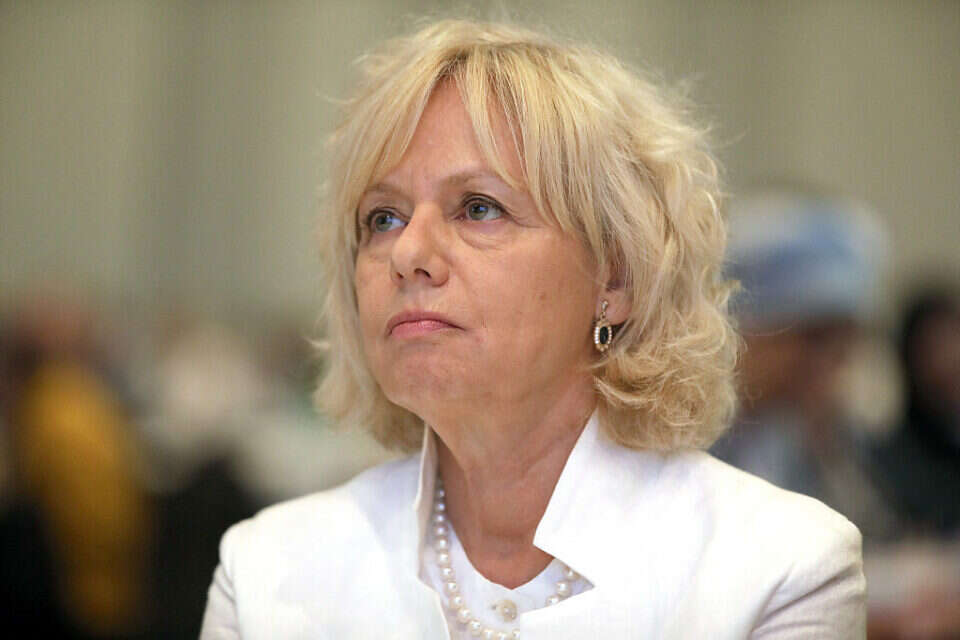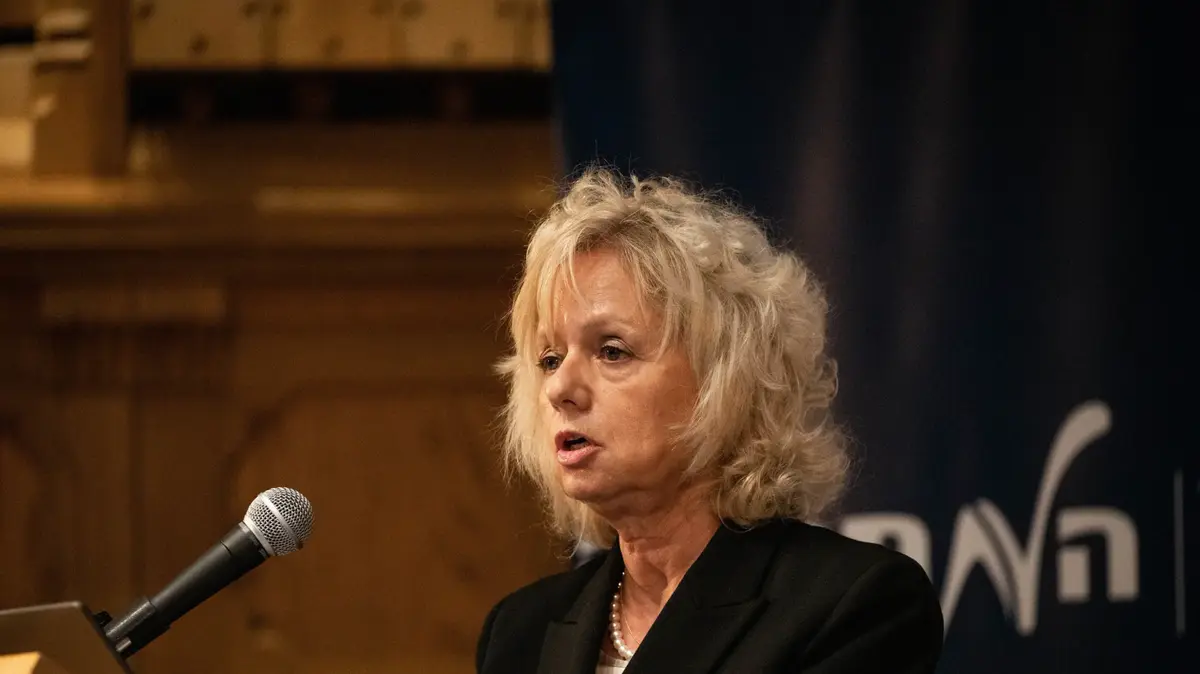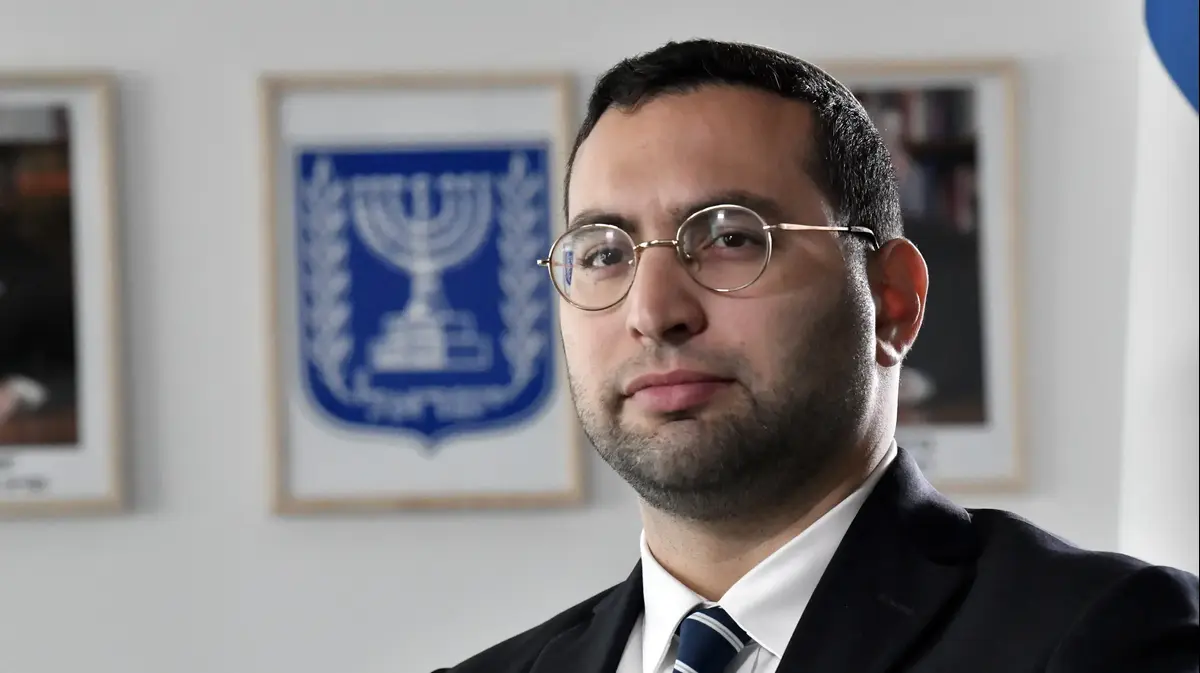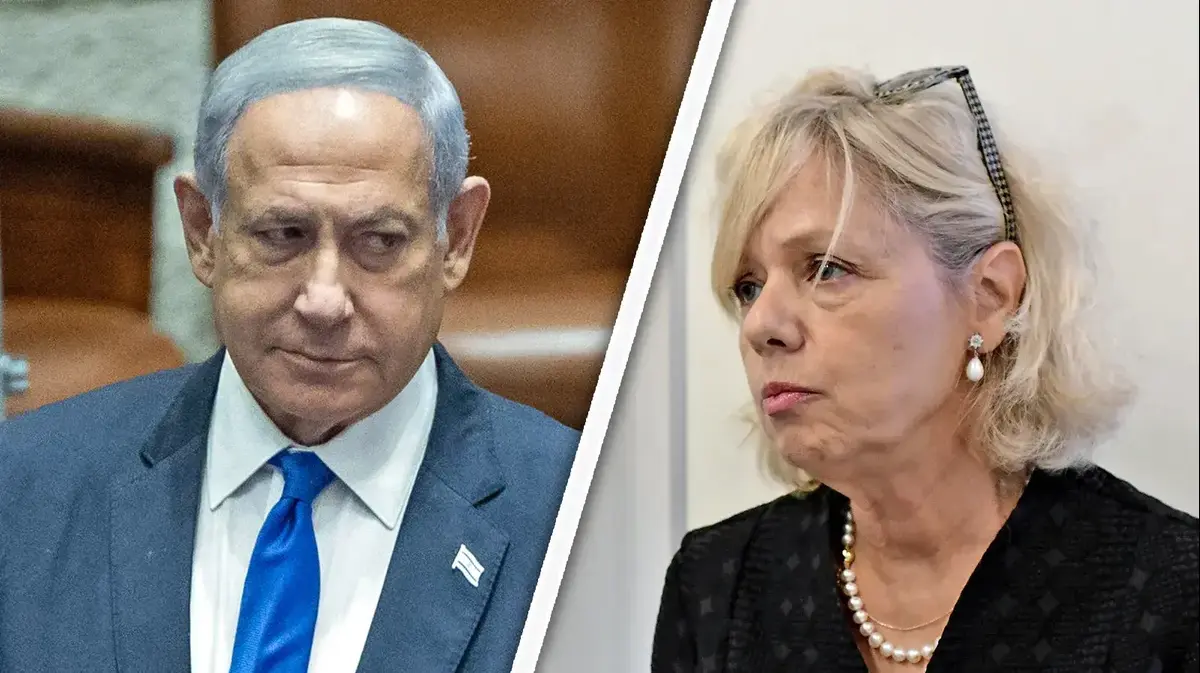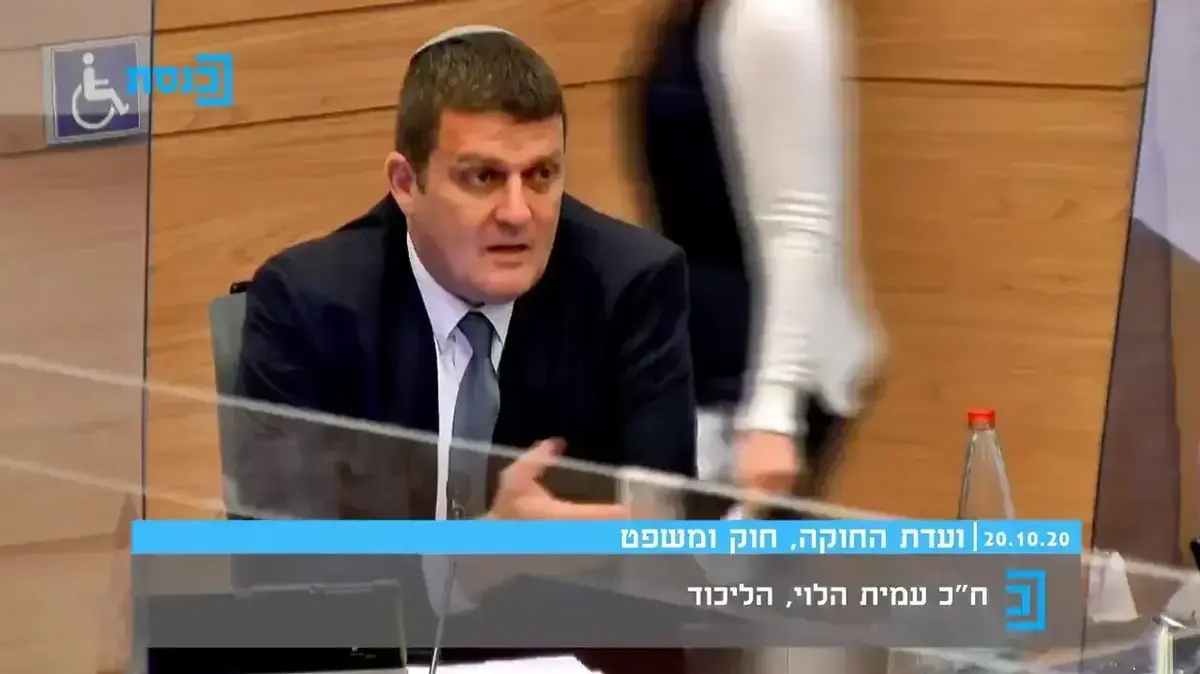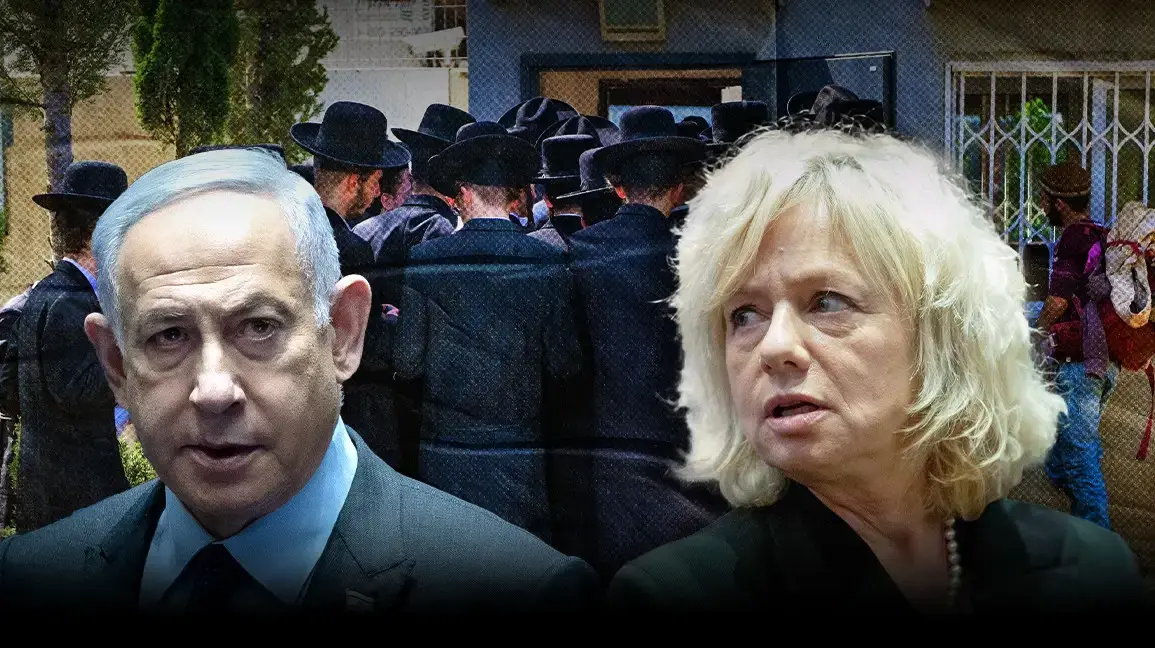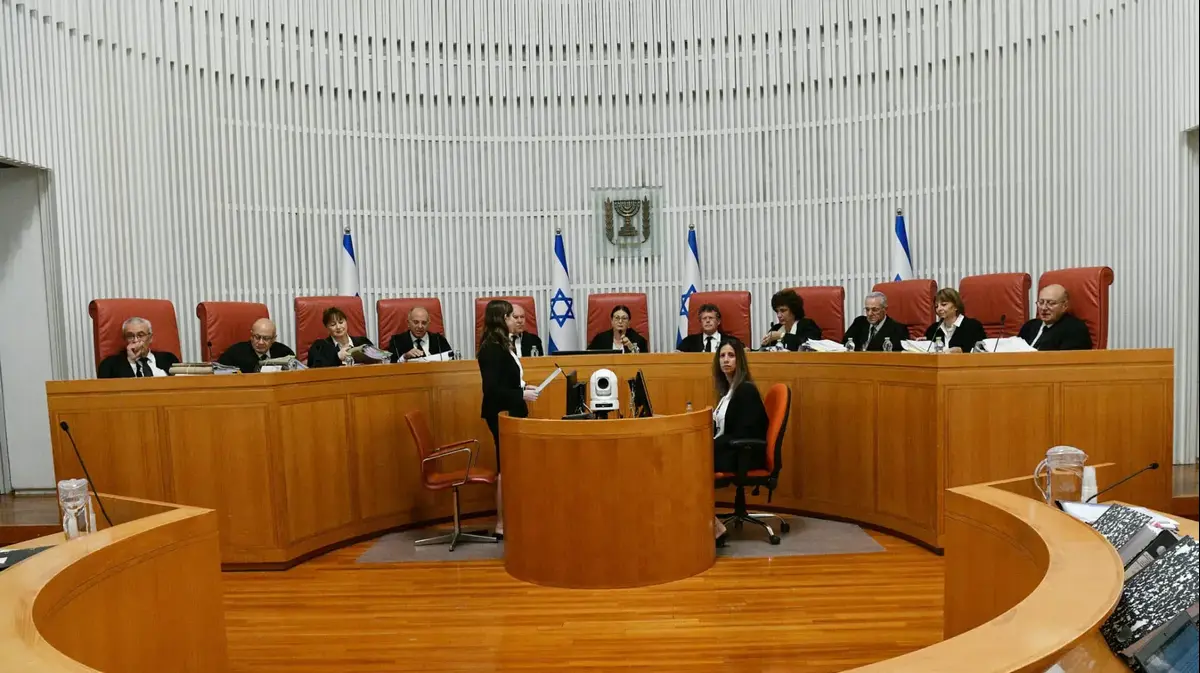"Raise D-9 on the Supreme Court" - this is how former Knesset member Moti Yogev unsuccessfully expressed himself about seven years ago. This was only a critical metaphor intended to make it clear that there is a need for a profound change in the Supreme Court.
From familiarity with the State Beit Midrash that sanctifies the state, from which Yogev came, an actual operation of D-9 on the Supreme Court, and much less than that, outside the scope. the High Court, which were presented as opponents of democracy itself.
However, the operator of that 9-D is precisely the combination consisting of legal advice and the Supreme Court. It operates it literally, practically and not as a metaphor, against the foundations of democracy, which is centered on the sovereignty of the people through its representatives elected in free elections. This was expressed this week at the opening of the legal conference by the two delegations The leaders of the combination, the President of the Supreme Court Ester Hayut and the Ombudsman Gali Beharve-Miara.
Minister of Justice Gideon Sa'ar, head of the Bar Association Avi Chaimi and President of the Supreme Court Esther Hayut, photo: Gideon Markovich
Referring to a worldwide process, Hayut clarified that it "did not pass over the State of Israel either, and it is reflected in dangerous attempts to politicize the judicial system and erode public trust in it."
Later she asked to "leave the entire judiciary out of the political game".
If the veteran law professor Manny Mautner had been there, his response to these statements would have been much more interesting than Hayut's misleading words.
Dina Damalkuta
From Mautner we learned that the developments were completely opposite from the description of animals.
The extensive and deep politicization of the High Court was designed by Aharon Barak. In the 1970s, the hegemonic group lost political power. From then on, according to Mautner, it strove to turn the High Court into a political arena.
Without a majority in the Knesset and without positions in the government, it is possible to attack government policies and laws in the legal arena, thus shaping, influencing and determining policy.
Mautner's assertion that the court willingly accepted this move is amazing.
Therefore, the claim of animals trying to politicize is baseless.
The politicization has already been done, it is deep, and it was shaped by the court itself.
That deep politicization was carried out through so-called legal tools, some of which were invented and some of which were infinitely expanded.
Thus, for example, the cause of reasonableness, which in its essence is unmeasurable and definable, and which allowed the Court of Appeal to rule as much as it pleased. So is its cousin proportionality, and other relatives such as the basic principles of the system, unwritten fundamental rights, and more. Their common denominator is The obscurity and ambiguity, which allow the court to do as it pleases.
Former Supreme President Prof. Aharon Barak.
Shaped the extensive and deep politicization of the court, photo: Gideon Markovich
A famous tool of politicization is the distinction between formal and substantive democracy.
The formal includes these "small" things such as free elections, a coalition majority, a legislative Knesset and a government that implements policy.
The "essential" - the most important in the eyes of the activists - concerns values, we mean the "essential" check if all this annoying formality meets the essential, valuable standards.
And these are dictated by the combination of legal advice and the court.
This is how former deputy ombudsman Dina Zilber dared to write in her book that "the important trend is the transfer of the center of governmental power and the ability to make practical decisions... from the elected political level to the appointed bureaucratic level".
within the value framework
This week there was a substantial, informal leap forward.
At the same ceremony, the ombudsman for the government Gali Beharve-Miara made a completely new distinction between "formal moshilots" and "substantial moshilots". This is a completely new invention, and you will not find the terms before the invention in question.
She did it in the same way that Aharon Barak would have done it: in many cases, when Barak approached to invalidate a law, to invalidate government policy, and in general to interfere in the actions of other government authorities, he would soften the move.
He would preface honorable and beautiful things about the importance of the separation of authorities, stressing the importance of the independence of the other governing authority, all while emphasizing that the Supreme Court did not come to replace the other authorities. Then there would come a "but" clarifying why in the case before us, "under the circumstances of the matter", "Based on the facts", and "according to the basics of the system", the court must intervene.
The ombudsman clarifies that "the responsibility for formulating the policy of the executive authority rests with the elected echelon.
Governance... is the ability of the political echelon to determine policy, to lead the government institutions to implement the established policy, and alongside it the responsibility of the elected echelon to the voters... Without governance, the democratic process is harmed, as the sting of the principle of representation has been removed." And most importantly, "our role in legal advice For the government to help the political level to govern.
It is our duty to deeply understand the government's policy... and enable its implementation within the limits of the law." Who can oppose these clear and understandable statements?
But after the softening comes the legal innovation.
The formal governance asks, "Is it possible for the elected echelon to realize the will of the majority?", but the essential governance means that "the governing power is not exercised in a vacuum, but within a value framework... in a way that aligns with the Jewish and democratic values of the state."
The practical, natural continuation, Haharan-Barki, is already known in advance: the one who will determine whether the regimes are compatible with the various values, their interpretation and weighting is the ombudsman, followed by the court. It is the combination that will determine in the end. ", including the new invention of substantive governance. Therefore, those who do not want to be left with only a formal victory in the upcoming elections, must remember that the important task is to make the necessary changes in the combination of legal advice and the legal system. And the changes required are very substantial.
were we wrong
We will fix it!
If you found an error in the article, we would appreciate it if you shared it with us

